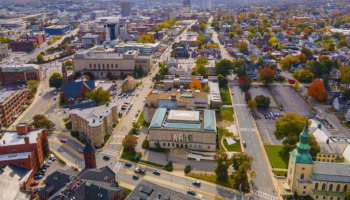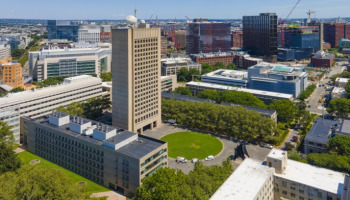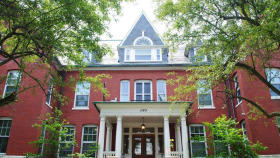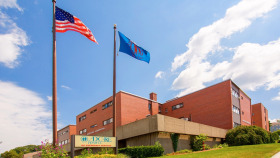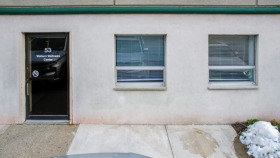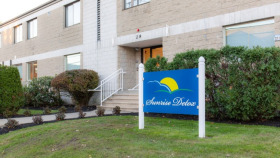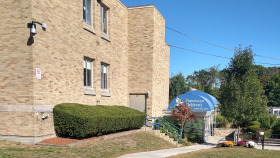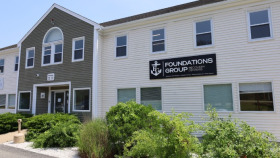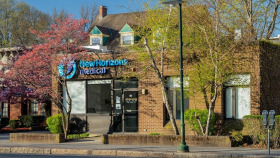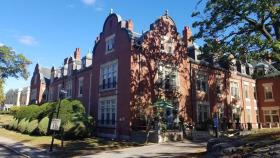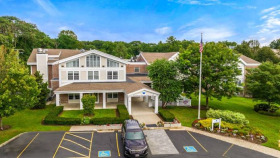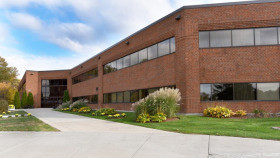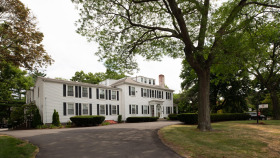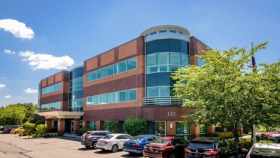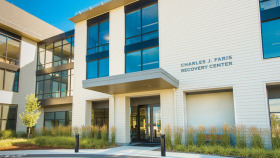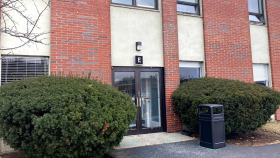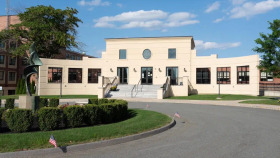Expert Insights
If we want to clean up the reputation of the addiction treatment industry, it has to start with the professionals. After all, you can’t really complain about someone else’s dirty house when your own is in complete disarray. To illustrate my point, I saw an article in the local newspaper about a chain of Massachusetts treatment clinics that cheated health insurance companies out of millions of dollars. And while the clinic owner and former supervising counselor lined their own pockets with fraudulent insurance funds, they were also depriving their own clients of vital recovery services and the chance to succeed in recovery. These two scoundrels have been charged with healthcare fraud, aggravated identity theft, money laundering, and obstruction. It’s time to clean house – the clients deserve better!
~ Peg O’Connor
How Much Does Drug Rehab Cost in Massachusetts?
Massachusetts is ranked 27th nationwide in terms of addiction treatment affordability, with an average cost of drug and alcohol rehab of $56,725 (without insurance).
- Medical detox is the most expensive, with an average cost of $139,848
- Long-term inpatient drug rehab in Massachusetts costs an average of $50,056
- Outpatient addiction treatment in Massachusetts costs an average of $8,317
- Outpatient methadone treatment is the most affordable, with an average cost of $7,390
The exact cost of drug or alcohol rehab in Massachusetts can vary depending on several factors, including:
Treatment type
Features and amenities
Length of program
Insurance coverage
Special financing or government funding
Location
How to Pay for Drug Rehab in Massachusetts
Don’t let the cost of help deter you from seeking the care you need. Many free or low-cost programs are available, and many addiction treatment centers offer sliding scales or payment assistance.
As of 2024, there were over 490 drug rehab facilities across the state of Massachusetts. These facilities accept several payment methods. Of those treatment facilities, the following numbers reflect how many accept their respective payment methods:
Paying for addiction treatment in Massachusetts may feel challenging or overwhelming. The following payment options can help reduce your financial burden and make drug and alcohol rehab in Massachusetts more accessible so you can achieve sustainable recovery.
Private Pay + Insurance
Many employers offer commercial health insurance that usually pays for mental health and substance abuse treatment. Two federal laws mandate coverage for most policies, but there are exceptions. You must verify your health insurance coverage before receiving treatment. Health insurance policies purchased through the Health Insurance Marketplace meet the requirement for essential services, including substance abuse treatment.
Some people may choose self pay or private pay to reduce the potential that their employer will learn about their addiction treatment. Look for treatment centers that offer payment plans or sliding scale fees based on your income and ability to pay. The following are commercial health insurance providers in Massachusetts.
- Always Health Partners
- Blue Cross and Blue Shield of Massachusetts HMO Blue, Inc.
- BMCHP
- BMSC Healthnet Plan
- Fallon Community Health Plan
- Harvard Pilgrim Healthcare, Inc.
- Health New England
- UnitedHealthcare Insurance Company
- Neighborhood Health Plan of MA
- Tufts Health Public Plans
Medicaid
Medicaid is a state and federally sponsored health plan designed to provide care for individuals who meet the eligibility requirements.3 These requirements usually include having U.S. citizenship or certain migrant status, a current Social Security number, Massachusetts residency, and income limits. Medicaid provides low cost and free care, including mental health and substance abuse treatment.
Massachusetts Medicaid is administered through the MassHealth program after meeting eligibility requirements. MassHealth administers a combination of health benefits for Massachusetts residents, some of which require premium payments or copays.
Medicare
Medicare is a federally funded health program primarily for people aged 65 and older. There are two parts to Original Medicare. Medicare Part A covers inpatient hospitalization and substance abuse treatment, and Medicare Part B covers outpatient care. More than 1.4 million people living in Massachusetts are enrolled in Medicare and 38% of those are enrolled in Medicare Advantage plans.
Medicare Advantage is also known as Medicare Part C. These plans are premium-based, managed care plans offered by commercial health insurance companies that combine the benefits of Original Medicare and may include extra benefits. Medicare Part D is also premium-based and covers prescription drugs, including those for opioid drug substitution programs. Massachusetts combines Medicare benefits with MassHealth under the One Care umbrella.
Military Insurance
TRICARE is the health care program for active duty and retired military members and their families, National Guard and Reserve members worldwide. The company combines health resources from the Military Health System, such as hospitals and clinics, with civilian healthcare professionals and facilities.
TRICARE organizes worldwide coverage into three regions. This includes two regions in the U.S. and Massachusetts is covered under the East Region and is administered by Humana Military.8 Massachusetts offers state-sponsored life insurance for National Guard members and compensation for injury, illness, or disability while they’re on active duty. VA Healthcare10 also covers military personnel and their families for primary care and specialists including mental health providers and substance abuse treatment.
Tribal Funding and Programs
There are two federally recognized tribes within Massachusetts state borders. Massachusetts participates in the Substance Abuse Mental Health Services Administration Substance Abuse Block Grant Plan that is available throughout the U.S. Each year the state receives federal funds to support prevention, treatment, and recovery activities. Massachusetts has 71 grants available for substance abuse. According to Massachusetts Grant Watch, there are 45 treatment and prevention grants, eight of which are for tribal entities to address prevention, treatment, and recovery.
Other Low-Cost Options
Low cost and free rehabs in Massachusetts offer several ways of reducing your rehab cost. Private loans from banks and friends and family allow you to begin treatment immediately. While banks offer greater confidentiality, friends and family usually have lower interest rates and more flexible payment plans. Several other options can help lower your cost of treatment including grants and scholarships from local businesses and organizations. Your local addiction treatment center can typically put you in touch with those businesses.
Some treatment centers offer payment plans and sliding scale fees. To qualify, you usually must prove your income level and ability to pay. Faith based programs and community based groups are often nonprofit organizations and collect donations to help cover the cost of rehab. Finally, consider asking friends and family for financial help. Although this can feel uncomfortable, the cost of addiction is far more demanding.
Free Addiction Treatment Resources in Massachusetts
RIZE Massachusetts
The independent nonprofit organization is the only partnership between public and private groups that is dedicated to funding resources that help end the overdose crisis. They’re building a network of resources that use novel approaches to prevent overdose and expand evidence-based treatment and recovery.
Speaking of Hope
Young people have access to web and social media platforms, so they can access connections and support throughout the community. Young adults have access to employment, training, and education, crisis and support hotlines, and mental health support.
Community Health Training Institute
The Institute works with the Massachusetts Department of Public Health to foster community engagement and access to resources and training. The site has a searchable database to help you find options in the areas where you need help.
Safe Coalition Massachusetts
Some of the programs available at Safe Coalition include a teen drop in center, teen male mentorship, teen female mentorship, teen substance use diversion program, Narcan training, and resources to help communities build an inclusive environment.
Cambridge Health Alliance
The Cambridge Public Health Department has an overdose prevention training program that includes monthly virtual education on Naloxone administration including how to recognize the signs of an overdose and treatment options for opioid users.
Massachusetts Alcohol and Drug Use Statistics
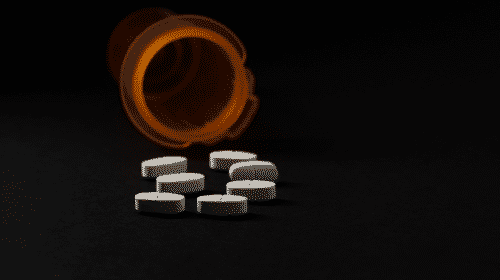
Massachusetts saw more than 1,200 confirmed opioid-related overdose deaths between January 2021 and November 2021.2

An analysis of research by the Boston Foundation shows that opioid addiction in Massachusetts is more prevalent than twice the national average.3

Research also shows that the use of illicit narcotic fentanyl is common in Massachusetts.3

Alcohol, crack cocaine, and marijuana account for a significant number of admissions to Massachusetts drug rehabs.
Alcohol and Drug Laws in Massachusetts
911 Good Samaritan Law: In 2012, Massachusetts passed the 9-1-1 Good Samaritan law. It provides that anyone who calls 9-1-1 during an overdose emergency won’t be charged with possession of a controlled substance. This law was created to encourage more people to call emergency services during overdoses.
Naloxone Laws: Massachusetts state law allows for an individual to obtain naloxone (Narcan) with the intention to administer it to another person in the event of an emergency overdose. Further, anyone can administer naloxone as emergency care for an opioid-related overdose without fear of legal repercussions.
Marijuana Decriminalization: In 2016, Massachusetts legalized marijuana for recreational use by adults 21 years and older. Adults can legally possess up to one ounce of marijuana in public and up to 10 ounces in their own residences.
Resources
- FindTreatment.gov. (n.d.). FindTreatment.gov.
- U.S. Department of Health and Human Services. (2018). Principles of Effective Treatment.
- Massachusetts Department of Public Health. (2021). Opioid-Related Overdose Deaths, All Intents, MA Residents – Demographic Data Highlights.
- Boston Indicators. (2018). Opioid Addiction Is a National Crisis. And It’s Twice as Bad in Massachusetts.
- Substance Abuse and Mental Health Services Administration. (2021). Results from the 2020 National Survey on Drug Use and Health.
- Substance Abuse and Mental Health Services Administration. (2022). The Case for Screening and Treatment of Co-Occurring Disorders.
- Pettinati, H.M., & Dundon, W.D. (2011). Comorbid depression and alcohol dependence. Psychiatric Times, 28(6).
- National Institute on Drug Abuse. (2008). Comorbidity: Addiction and Other Mental Illnesses.
- Gielen, N., Havermans, R. C., Tekelenburg, M., & Jansen, A. (2012). Prevalence of post-traumatic stress disorder among patients with substance use disorder: it is higher than clinicians think it is. European journal of psychotraumatology, 3, 10.3402/ejpt, v3i0, 17734.
- Lawson, Nicole R. (2014). Posttraumatic stress disorder in combat veterans. Journal of the American Academy of PAs, 27(5).
- Ostacher, Michael J & Sachs, Gary S. (2006). Update on bipolar disorder and substance abuse: recent findings and treatment strategies. The Journal of Clinical Psychiatry, 67(9).
- Goretti, S. (2017). The relationship between personality disorders and substance abuse disorders. European Psychiatry, 41(S473-S474).
- Substance Abuse and Mental Health Services Administration. (2013.) Family Therapy Can Help. Substance Abuse and Mental Health Services Administration.




